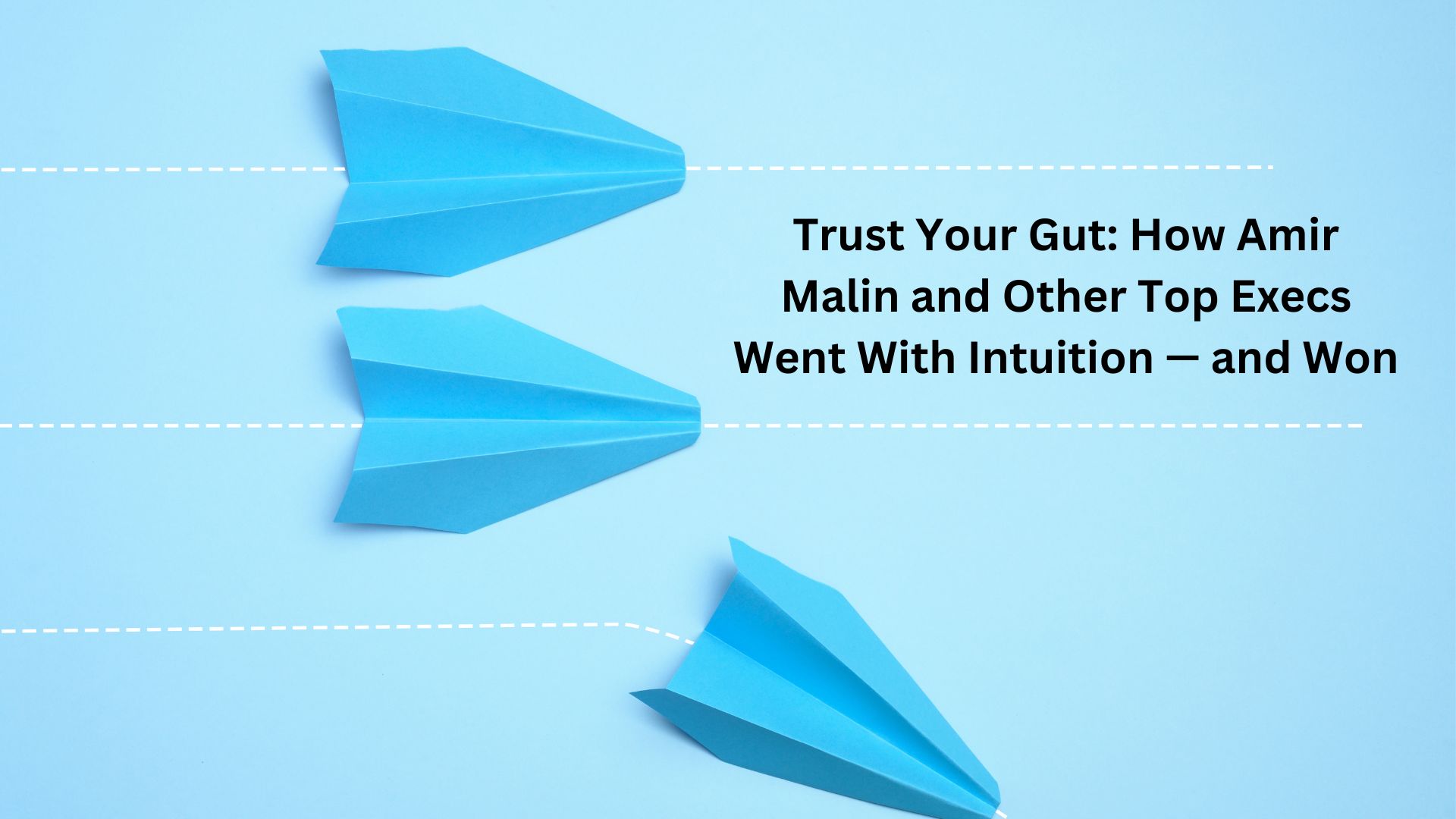Trust Your Gut: How Amir Malin and Other Top Execs Went With Intuition — and Won
Did you ever get a feeling that every shred of logic told you was wrong, but you knew in your gut was right? It’s not always financial wizardry or technical perfections that push an industry forward. Often, discovering a new path to success means relying on instinct — even when it flies in the face of conventional wisdom.
One of the most legendary examples of gut feelings prevailing over industry thinking came in the mid-1990s, just as the digital revolution had begun. Bain Capital was finalizing its planned buyout of Live Entertainment. Before the asset management group finished the purchase, its staff called in industry executive Amir Malin for an insider’s perspective.
Amir Malin’s Hunch
Amir Malin was no stranger to small studios. He had built a respected name for himself after co-founding Cinecom Films, one of the most important independent film producers of the time, and serving as President and leading strategist at October Films, an independent film distribution company.
Bain trusted that his thorough knowledge of the industry would help the firm accurately plot a profitable way forward. After all, Malin trained as a lawyer. He seemed like the kind of pragmatic thinker who could ensure that Bain had a thorough understanding of the business and hadn’t negligently overlooked any potential pitfalls.
So, when he gave Bain feedback that relied on a personal hunch rather than a completely practical analysis, it was all the more intriguing.
Looking over Bain’s proposed business plan for Live Entertainment, Malin immediately saw that something was amiss. The plan projected the company would net about $1 million by selling movies on a new but unproven platform for home viewing.
Malin took issue with that estimate. He believed the profits would be much, much higher.
But what sounds like common sense in 2023 — that the DVD would overtake the LaserDisc as the dominant form of at-home movie delivery — seemed almost crazy in 1997. At the time, LaserDiscs offered higher-quality pictures while VHS cassettes allowed consumers the option to record. DVDs seemed like they provided the worst of both worlds.
Malin, however, saw things differently.
Bucking industry thinking, Malin believed that the DVD could replace both. He knew that DVDs were portable and easy to store, offering consumers a more convenient way to keep their favorite movies on hand. And they resembled CDs, which had recently eclipsed audio cassettes and vinyl records, both of which already felt like relics of a bygone era.
Malin was direct with Bain. He told them he had a gut feeling that DVDs would become the next big thing. They believed him — and everyone knows how that story ended.
A Long Line of Out-of-the-Box Thinkers
Of course, Amir Malin wasn’t the first thought leader to buck the status quo. Back when horse-drawn carriages put blacksmiths out of business, Henry experienced a lull in demand for the contraptions and started losing employees. Making a move that other industrialists likely considered insane, Ford doubled workers’ wages. Productivity soared, but more than that, staffers could finally afford to buy their own vehicles — and they did.
to a survey of global CEOs by multinational professional services network KPMG, just 35% of executives have a high confidence in their organization’s data. More than half said they ignored data analysis or computer models in the past three years because it contradicted their intuition.
“You should collect as many data points as you can,” advised Brad Fisher, KPMG’s U.S. leader of data and analytics. “But don’t throw out your intuition.”
founder Steve Ells was fed data that pointed to opening new shops in busy locations, adding drive-thrus or a breakfast menu, or amping up the advertising budget. But something told him the tide was turning in the healthier, fresher food sector and pivoted in that direction. The rest, as they say, is history.
If you fly the friendly skies with any frequency, give a tip of the cap to Bill , Boeing’s CEO back in the ’50s. The company was doing just fine working for the defense industry. But Allen sensed a change in the air. He talked Boeing’s board into investing $16 million in a transcontinental aircraft, the Boeing 707, designed to transport civilian travelers — and revolutionizing the travel industry. So the next time the airline loses your luggage, you know who to blame.
Bold leaders make bold decisions, and when they have their fingers on the pulse, like Amir Malin, Henry Ford, and Steve Ells, that can pump up the bottom line beyond a data analyst’s wildest dreams. Perhaps the old cliche needs to be reworked: Instead of going for the gusto, go for the guts.

